第30章 GLIMPSES OF POETRY(3)
A tattered copy of Johnson's large Dictionary was a great delight to me,on account of the specimens of English versification which I found in the Introduction.I learned them as if they were so many poems.I used to keep this old volume close to my pillow;and I amused myself when I awoke in the morning by reciting its jingling contrasts of iambic and trochaic and dactylic metre,and thinking what a charming occupation it must be to "make up"verses.
I made my first rhymes when I was about seven years old.My brother John proposed "writing poetry"as a rainy-day amusement,one afternoon when we two were sent up into the garret to entertain ourselves without disturbing the family.He soon grew tired of his unavailing attempts,but I produced two stanzas,the first of which read thus:--"One summer day,said little Jane,We were walking down a shady lane,When suddenly the wind blew high,And the red lightning flashed in the sky.
The second stanza descended in a dreadfully abrupt anti-climax;but I was blissfully ignorant of rhetoricians'rules,and supposed that the rhyme was the only important thing.It may amuse my child-readers if I give them this verse too:
"The peals of thunder,how they rolled!
And I felt myself a little cooled;
For I before had been quite warm;
But now around me was a storm."
My brother was surprised at my success,and I believe I thought my verses quite fine,too.But I was rather sorry that I had written them,for I had to say them over to the family,and then they sounded silly.The habit was formed,however,and I went on writing little books of ballads,which I illustrated with colors from my toy paintbox,and then squeezed down into the cracks of the garret floor,for fear that somebody would find them.
My fame crept out among the neighbors,nevertheless.I was even invited to write some verses in young lady's album;and Aunt Hannah asked me to repeat my verses to her.I considered myself greatly honored by both requests.
My fondness for books began very early.At the age of four I had formed the plan of collecting a library.Not of limp,paper-covered picture-books,such as people give to babies;no!Iwanted books with stiff covers,that could stand up side by side on a shelf,and maintain their own character as books.But I did not know how to make a beginning,for mine were all of the kind manufactured for infancy,and I thought they deserved no better fate than to be tossed about among my rag-babies and playthings.
One day,however,I found among some rubbish in a corner a volume,with one good stiff cover;the other was missing.It did not look so very old,nor as if it had been much read;neither did it look very inviting to me as I turned its leaves.On its title-page I read "The Life of John Calvin."I did not know who he was,but a book was a book to me,and this would do as well as any to begin my library with.I looked upon it as a treasure,and to make sure of my claim,I took it down to my mother and timidly asked if I might have it for my own.She gave me in reply a rather amused "Yes,"and I ran back happy,and began my library by setting John Calvin upright on a beam under the garret eaves,my "make-believe"book-case shelf.
I was proud of my literary property,and filled out the shelf in fancy with a row of books,every one of which should have two stiff covers.But I found no more neglected volumes that I could adopt.John Calvin was left to a lonely fate,and am afraid that at last the mice devoured him.Before I had quite forgotten him,however,I did pick up one other book of about his size,and in the same one-covered condition;and this attracted me more,because it was in verse.Rhyme had always a sort of magnetic power over me,whether I caught at any idea it contained or not.
This was written in the measure which I afterwards learned was called Spenserian.It was Byron's "Vision of Judgment,"and Southey's also was bound up with it.
Southey's hexameters were too much of a mouthful for me,but Byron's lines jingled,and apparently told a story about something.St.Peter came into it,and King George the Third;neither of which names meant anything to me;but the scenery seemed to be somewhere up among the clouds,and I,unsuspicious of the author's irreverence,took it for a sort of semi-Biblical fairy tale.
There was on my mother's bed a covering of pink chintz,pictured all over with the figure of a man sitting on a cloud,holding a bunch of keys.I put the two together in my mind,imagining the chintz counterpane to be an illustration of the poem,or the poem an explanation of the counterpane.For the stanza I liked best began with the words,--"St.Peter sat at the celestial gate,And nodded o'er his keys."I invented a pronunciation for the long words,and went about the house reciting grandly,--"St.Peter sat at the kelestikal gate,And nodded o'er his keys."That volume,swept back to me with the rubbish of Time,still reminds me,forlorn and half-clad,of my childish fondness for its mock-magnificence.
John Calvin and Lord Byron were rather a peculiar combination,as the foundation of an infant's library;but I was not aware of any unfitness or incompatibility.To me they were two brother-books,like each other in their refusal to wear limp covers.
It is amusing to recall the rapid succession of contrasts in one child's tastes.I felt no incongruity between Dr.Watts and Mother Goose.I supplemented "Pibroch of Donuil Dhu"and "Lochiel,Lochiel,beware of the day,"with "Yankee Doodle"and the "Diverting History of John Gilpin;"and with the glamour of some fairy tale I had just read still haunting me,I would run out of doors eating a big piece of bread and butter,--sweeter than any has tasted since,--and would jump up towards the crows cawing high above me,cawing back to them,and half wishing I too were a crow to make the sky ring with my glee.